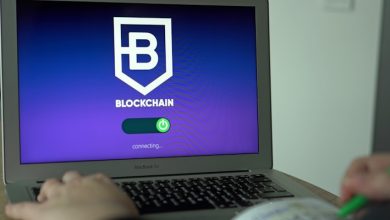Real-Time Blockchain Auditing Tools and Their Importance

- Understanding Real-Time Blockchain Auditing Tools
- The Role of Blockchain Auditing Tools in Ensuring Transparency
- Benefits of Using Real-Time Blockchain Auditing Tools
- How Real-Time Blockchain Auditing Tools Improve Security
- Challenges and Limitations of Real-Time Blockchain Auditing Tools
- Implementing Real-Time Blockchain Auditing Tools in Your Business
Understanding Real-Time Blockchain Auditing Tools
Real-time blockchain auditing tools are essential for businesses and organizations looking to ensure the integrity and security of their blockchain transactions. These tools provide real-time monitoring and analysis of blockchain data, allowing users to track and verify transactions as they occur. By leveraging these auditing tools, businesses can detect any discrepancies or fraudulent activities on the blockchain network promptly.
One of the key benefits of real-time blockchain auditing tools is their ability to provide immediate insights into the state of the blockchain network. This real-time visibility allows businesses to quickly identify and address any issues that may arise, minimizing the risk of data breaches or financial losses. Additionally, these tools can help organizations comply with regulatory requirements by providing a transparent record of all transactions.
Furthermore, real-time blockchain auditing tools offer advanced analytics capabilities that allow users to gain valuable insights into their blockchain data. By analyzing patterns and trends in transaction data, businesses can identify potential risks and opportunities for improvement. This data-driven approach can help organizations optimize their blockchain processes and enhance overall efficiency.
In conclusion, real-time blockchain auditing tools play a crucial role in ensuring the security and integrity of blockchain transactions. By providing real-time monitoring, analysis, and insights, these tools empower businesses to detect and prevent fraudulent activities promptly. Leveraging the advanced analytics capabilities of these tools can help organizations optimize their blockchain processes and stay compliant with regulatory requirements.
The Role of Blockchain Auditing Tools in Ensuring Transparency
Blockchain auditing tools play a crucial role in ensuring transparency in the digital world. These tools are designed to provide real-time monitoring and verification of transactions stored on the blockchain. By using these tools, organizations can track and audit every transaction that occurs on the blockchain, ensuring that all activities are legitimate and secure.
One of the key benefits of blockchain auditing tools is that they help to prevent fraud and unauthorized activities. By monitoring transactions in real-time, these tools can detect any suspicious or fraudulent activities and alert the appropriate parties. This not only helps to protect the integrity of the blockchain but also enhances trust and confidence among users.
Moreover, blockchain auditing tools can also help organizations comply with regulatory requirements and industry standards. By providing detailed reports and analysis of blockchain activities, these tools make it easier for organizations to demonstrate compliance and accountability to regulators and stakeholders.
In conclusion, blockchain auditing tools are essential for maintaining transparency and trust in the digital world. By leveraging these tools, organizations can ensure the integrity of their blockchain transactions and demonstrate their commitment to security and compliance.
Benefits of Using Real-Time Blockchain Auditing Tools
Utilizing real-time blockchain auditing tools can provide numerous benefits for businesses and organizations looking to enhance their transparency and security measures. These tools offer a way to continuously monitor and verify transactions on the blockchain, ensuring that all data is accurate and up-to-date. By using these auditing tools, companies can detect any discrepancies or fraudulent activities in real-time, allowing them to take immediate action to rectify the issue.
One of the key advantages of using real-time blockchain auditing tools is the increased level of trust and credibility they can bring to an organization. By having a transparent and immutable ledger of transactions, businesses can build trust with their customers, partners, and stakeholders. This can lead to improved relationships and increased confidence in the organization’s operations.
Additionally, real-time blockchain auditing tools can help businesses comply with regulatory requirements more effectively. By providing a complete and accurate record of all transactions, companies can easily demonstrate their compliance with various regulations and standards. This can save time and resources that would otherwise be spent on manual auditing processes.
Furthermore, these auditing tools can also help businesses identify inefficiencies in their processes and systems. By analyzing transaction data in real-time, organizations can pinpoint areas where improvements can be made to increase efficiency and reduce costs. This can lead to streamlined operations and enhanced profitability for the business.
How Real-Time Blockchain Auditing Tools Improve Security
Real-time blockchain auditing tools play a crucial role in enhancing security for businesses and organizations by providing constant monitoring and verification of transactions on the blockchain network. These tools help in detecting any suspicious activity or unauthorized access to the blockchain, allowing for immediate action to be taken to prevent potential security breaches.
By utilizing real-time auditing tools, companies can ensure the integrity and transparency of their blockchain transactions, reducing the risk of fraud or data manipulation. These tools provide real-time updates and alerts, enabling organizations to respond quickly to any security threats or vulnerabilities on the blockchain network.
Furthermore, real-time blockchain auditing tools offer a higher level of accuracy and efficiency in identifying and resolving security issues compared to traditional auditing methods. With real-time monitoring capabilities, businesses can proactively protect their blockchain data and assets from cyber threats and attacks.
In conclusion, real-time blockchain auditing tools are essential for improving security in the digital age, providing organizations with the necessary tools and insights to safeguard their blockchain transactions and assets effectively. By leveraging these tools, businesses can enhance their security posture and mitigate the risks associated with blockchain technology.
Challenges and Limitations of Real-Time Blockchain Auditing Tools
Real-time blockchain auditing tools offer many benefits, but they also come with challenges and limitations that need to be considered. One of the main challenges is the complexity of auditing transactions on a blockchain in real-time. The decentralized and immutable nature of blockchain technology can make it difficult to track and verify transactions as they occur.
Another limitation of real-time blockchain auditing tools is the potential for false positives or false negatives. Due to the volume of transactions and the speed at which they occur, there is a risk of errors in the auditing process. This can lead to inaccurate results and misinterpretations of the data.
Furthermore, the lack of standardization in blockchain technology can pose challenges for real-time auditing tools. Different blockchains may have varying protocols and data structures, making it challenging to develop universal auditing tools that work across all platforms.
In addition, the reliance on external data sources for real-time auditing can introduce vulnerabilities and dependencies that may compromise the security and integrity of the auditing process. Ensuring the accuracy and reliability of external data feeds is crucial for the effectiveness of real-time blockchain auditing tools.
Implementing Real-Time Blockchain Auditing Tools in Your Business
Implementing real-time blockchain auditing tools in your business can provide numerous benefits in terms of transparency, security, and efficiency. By utilizing these tools, you can ensure that all transactions are recorded and verified in a secure and tamper-proof manner.
One of the key advantages of using blockchain auditing tools is the ability to track transactions in real-time, allowing for immediate identification of any discrepancies or suspicious activity. This can help prevent fraud and ensure compliance with regulatory requirements.
Furthermore, blockchain auditing tools can help streamline the auditing process by automating many tasks that would typically be done manually. This can save time and resources, allowing your business to focus on more strategic initiatives.
Overall, implementing real-time blockchain auditing tools in your business is a proactive step towards enhancing trust and accountability in your operations. It can also give you a competitive edge by demonstrating your commitment to transparency and security to your stakeholders.



